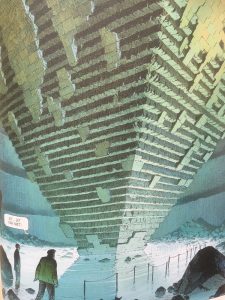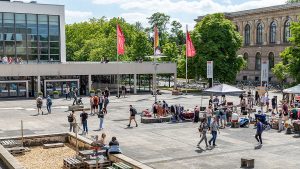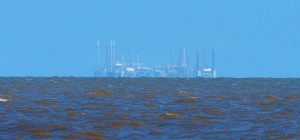At Alcalá University, Spain, for the Underground Imaginaries conference. I’ll be presenting about “Symbolic Cities beneath Brussels”, with an examination of Brüsel and other underground cities in two graphic novels by François Schuiten & Benoît Peeters.

The conference is organized by Fringe Urban Narratives and EROSS@DCU, with a host of collaborating networks and institutes, including the Association for Literary Urban Studies and the European Society of Comparative Literature. Very much looking forward to meet with friends and colleagues, old and new. Thanks especially to Patricia Garcia for bringing this all together and for inviting me to be involved in the Fringe network and this conference.
My presentation is part of the ALUS session “Underworld Cities”, with Riikka P. Pulkkinen on Athens’ underworld in literature, and Hanne Juntunen on urban and human underworlds. I’m especially keen on some of the upcoming sessions on thresholds, sewers and mines, underground anxieties and utopias, among others.
I’ve also had the opportunity of a quick visit to Madrid, going to the Atocha Station and the Prado to see Rogier van der Weyden’s Descent from the Cross – following in the footsteps of the protagonist in Ben Lerner’s Leaving the Atocha Station (2011).
—–
Abstract of my presentation below:
”Symbolic Cities Beneath Brussels”: Brüsel and other underground cities in graphic novels by François Schuiten & Benoît Peeters
This paper examines underground cities located underneath the Belgian and European capital, Brussels. It focuses on two Belgo-French graphic novels by François Schuiten & Benoît Peeters: Brüsel (1992) and Le Dernier Pharaon (2019). I will draw on existing research on literary urban studies in the context of graphic novels, including work by Jan Baetens, Giada Peterle and Benjamin Fraser. This paper aims to provide a tentative classification of the functions of underground cities by adapting James Phelan’s character classification of synthetic, mimetic, and thematic functions to the functioning of literary spaces.
Image source: Schuiten, Gunzig, Van Dormael & Durieux: Le Dernier Pharaon (2019).



